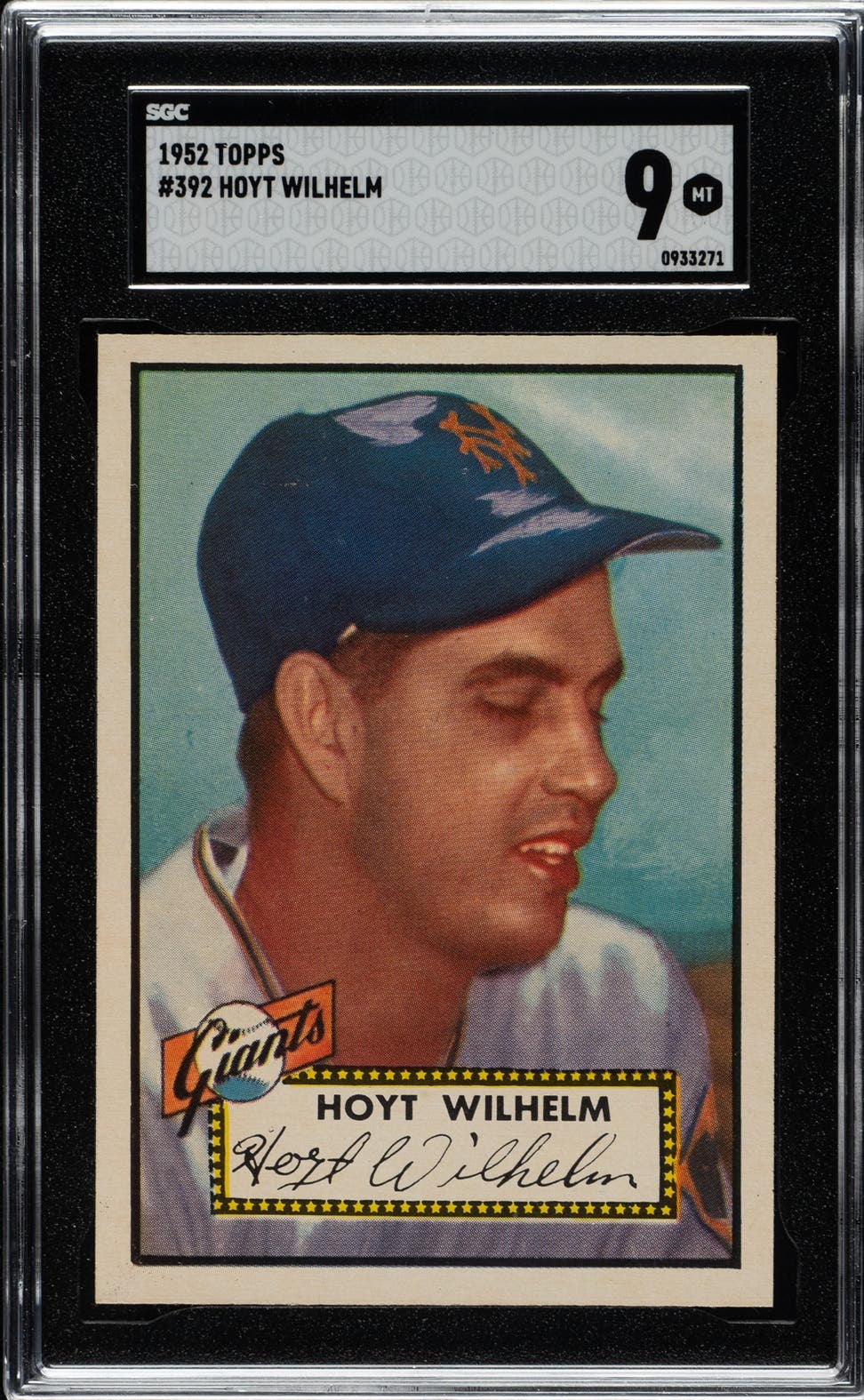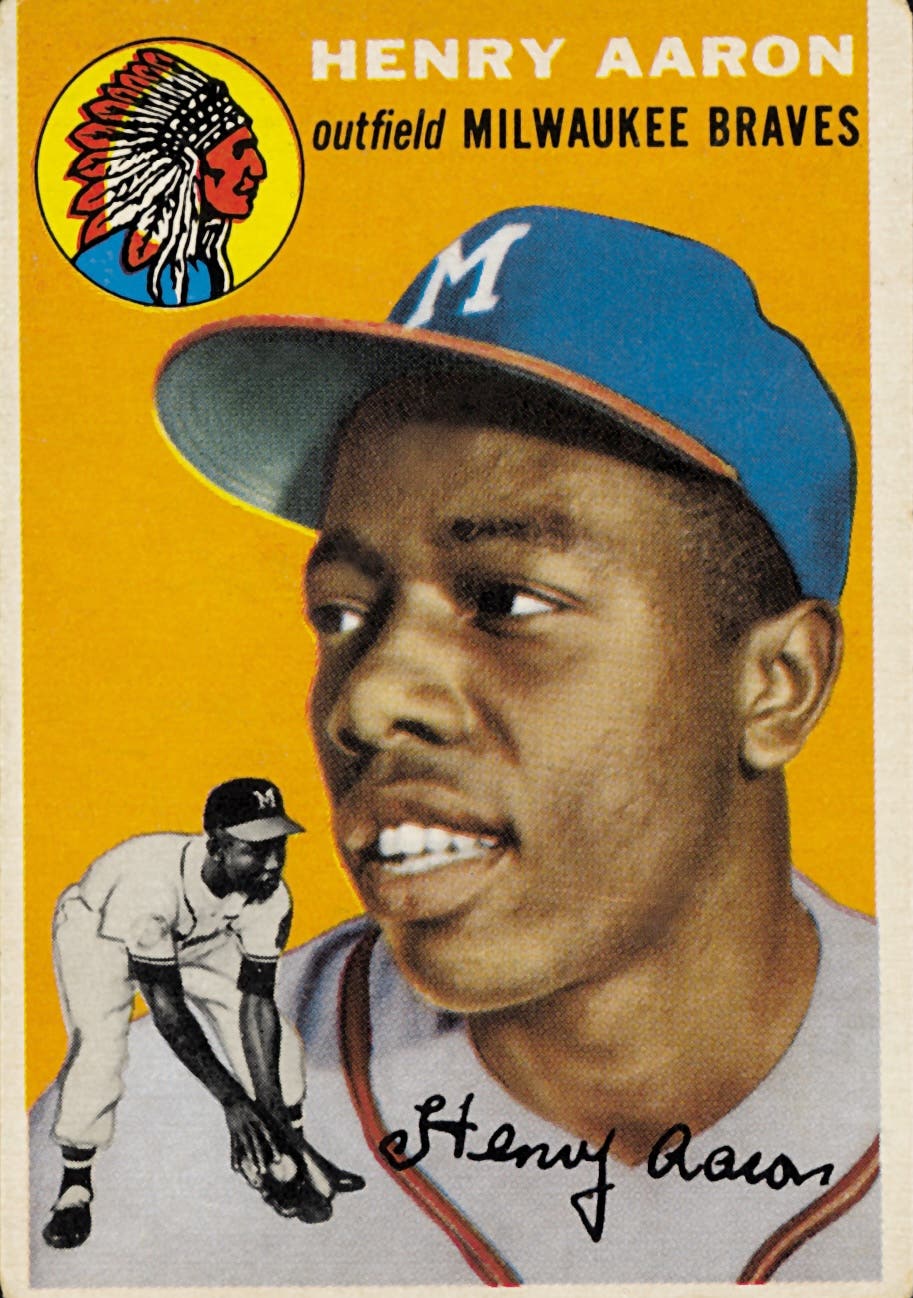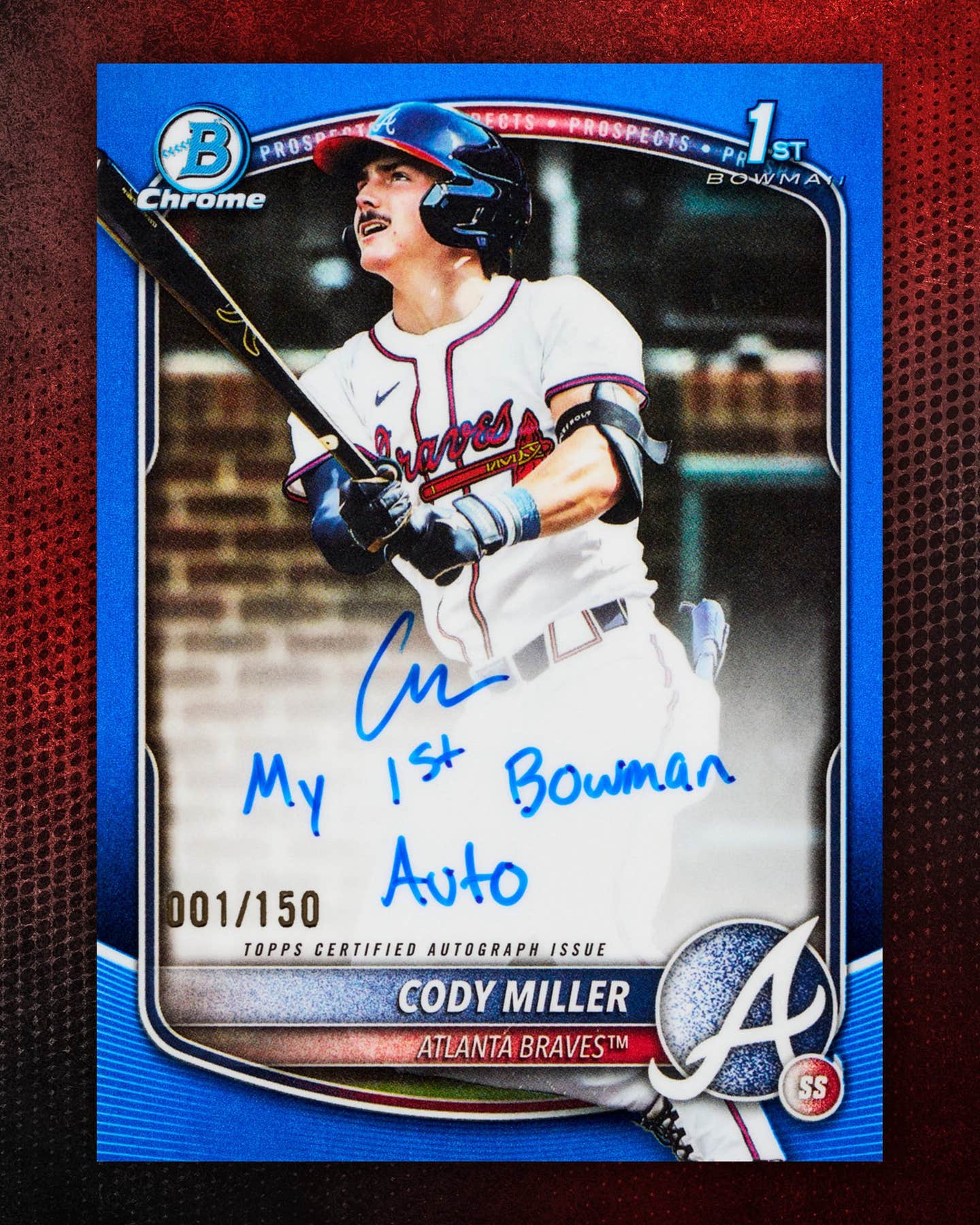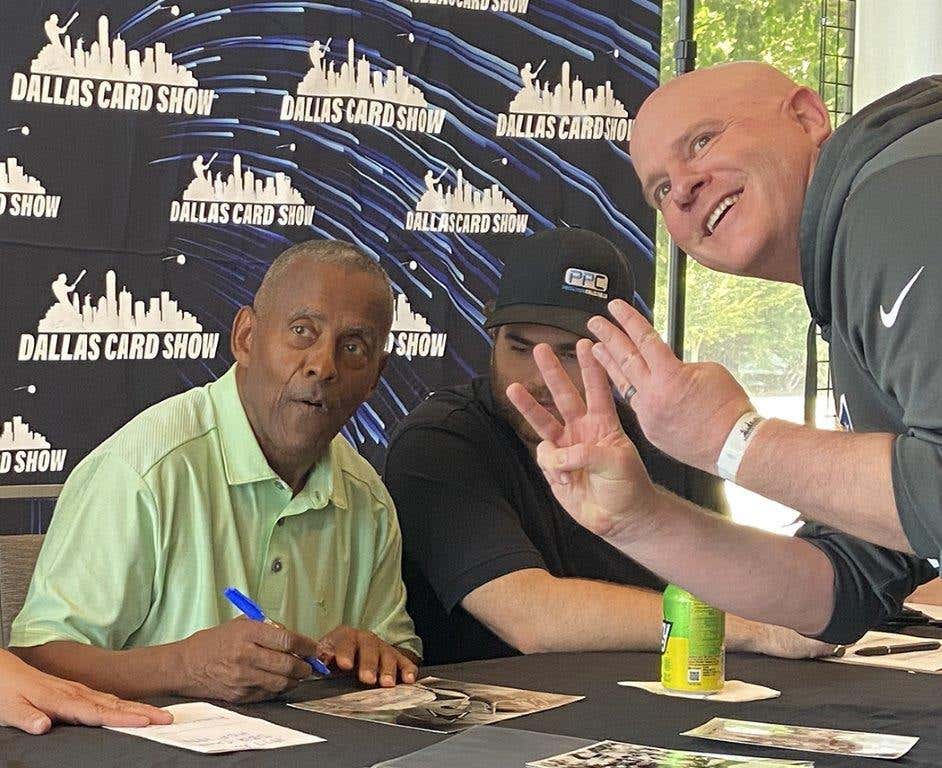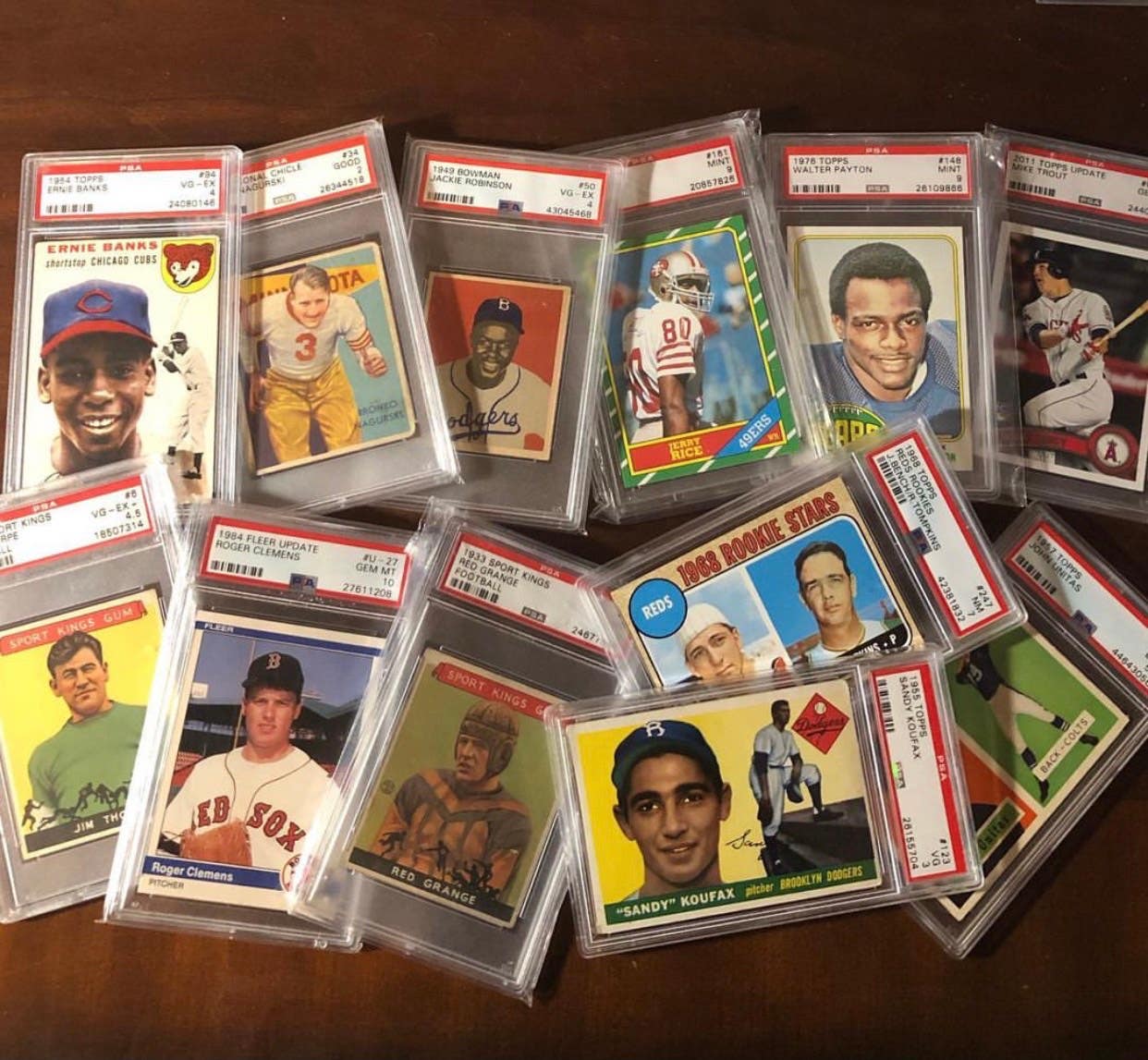
News
Special Report: How PSA shutdown is impacting sports card collectors, dealers
Like clockwork, every couple weeks Tait Hoodenpyl would submit bulk orders to Professional Sports Authenticator (PSA) for grading.
That became the norm in 2020 for Hoody’s Collectibles. Around 200 to 300 trading cards would go out in the mail for the shop’s customers. Sending in bulk orders were the most cost-effective means for collectors, especially with a time frame of around a 90-day turnaround.
But then PSA — the leading grading company in the industry since its inception in 1991 — was hit with what Nat Turner, executive chairman of Collectors Universe, PSA’s parent company, called a tsunami. Millions upon millions of cards came into PSA, and the company couldn’t keep up. On March 30, the hobby giant announced it was suspending incoming submissions.
Turner told Sports Collectors Digest on April 21 that PSA is backlogged by 10 million cards and is working on grading cards that came in as far back as seven months ago.
“What happened is we received an actual avalanche of cards around mid-March,” Turner said. “It was like a power surge to the system, and we couldn’t even tell people if their box was in the building. That’s just not acceptable. It’s not fine, but it’s more fine to like say, ‘Look, it’s going to take seven months to get your cards turned around.’ I think people are willing to understand that. They’re not happy about it, but it’s definitely not acceptable to say, ‘Hey, your precious cards, we can’t even tell you if we have them.’ That’s definitely not OK, so that’s really what precipitated the suspension of service. We needed to get through that power surge of demand.”
That spells bad news for collectors and dealers who have cards collecting dust in boxes at PSA. Hoodenpyl said he has between 15 and 20 orders — thousands of cards that were submitted as far back as late July — sitting at PSA headquarters in Santa Ana, Calif.
“They’ve been sitting in the grading phase for probably four months now,” Hoodenpyl said.
Hoodenpyl receives calls daily to his Beaverton, Ore. shop from collectors wondering about order updates.
“We get lots,” Hoodenpyl said laughing. “One of our guys that works the shop, he gets lots of calls like that. Most people understand it’s out of our hands.”
Yes, there’s nothing dealers and collectors who have submitted cards to PSA can do except be patient and wait. That’s an extremely hard thing for a collector to do, especially when the hobby is so incredibly hot right now.
Chad Weldon, co-owner of Sports Card Junction in Pittsburgh, said he submitted thousands of cards to PSA for grading during the pandemic. He sent in five orders in April 2020 alone, and one is still yet to be graded by PSA.
Prior to PSA suspending its services — Value, Economy, Regular and Express — Weldon had a feeling the shutdown was going to happen. If Weldon had submitted a bulk order in March 2021, he knew it would be eight months to a year out to get the cards back. He stopped accepting cards from customers.
“I kind of knew the writing was on the wall, and I didn’t want peoples’ cards to be out there for a year and a half and I didn’t want to have to track it,” Weldon said. “As soon as they shut down, we were like, ‘OK, we’re not talking about this again until they’re back up and running.’”
Weldon doesn’t directly make any money for submitting PSA orders for his customers, but they support his company in turn by buying supplies.
“It’s definitely affecting our sales, because basically every time we would run a group submission, we would have 30 or 40 people in it, and when that submission comes back from PSA and I break it down and I call everyone, most of those people are coming in and they’re buying stuff,” Weldon said. “It could be supplies or boxes or singles for their next submission.”
Collector Bart Bartholomew was active in sending cards to PSA during the pandemic. In July, he shipped 226 cards and they sat at PSA for two months before even getting logged in mid-September. Right now, they are in Stage 4 of the eight-stage process.
“I didn’t assume that I would have them by Christmas. I was smart enough to know that,” said Bartholomew, who is one of the administrators for the Facebook group PSA Graded Sports Cards Collectors. “It had already been taking a long time for everybody else’s. I sent them thinking eight or so months.”
In early 2021, Bartholomew, a resident of El Paso, Texas, submitted two orders to PSA: one modern and one ultra-modern (which is considered 2017 to present). He got his order in just before PSA raised its prices on March 1, prompting another avalanche of submissions.
“The rumor went around that the prices were going to go up and so I snuck out an ultra-modern with quickness, because I didn’t want to pay $20 a card for anything,” Bartholomew said.
Mike Moynihan has been a card collector for 40 years and he’s always been pro-PSA. He owns 4,000 PSA slabbed cards, acquiring most on the secondary market. However, he does submit orders to get graded. Moynihan, who has a big YouTube following as “Baseball Collector,” said he has three or four submissions — about 100 cards in all — into PSA right now. They were all sent at different times, but all are stuck in Stage 3, which Moynihan calls the hurry-up-and-wait stage.
‘It Was Their Only Play’
When PSA announced it was halting submissions, it sent shockwaves throughout the hobby.
How could the kings of card grading suspend its intake until at least July 1?
“My first thought was, I cannot believe that a business would cut off its new customer flow, it’s revenue source, for three months. It’s such a bold move,” Sports Card Investor founder and CEO Geoff Wilson said. “It’s such an unexpected move in the business world for any company in any industry to literally just cut off its sales for three months — I’ve never heard of it before.
“It shows you, first of all, how incredibly just busy PSA is, how much incredible momentum the hobby has. It also shows you how much of a lead PSA believes they have on their competition, because PSA would not have done that if they believed that they were not very secure in their position of being the king of the hobby. They fully expect to come back after this three months and be even more dominant, I would suspect.
“My second thought was, man, the hobby continues to remain on fire. The fact that this had to happen is a great sign of continued heat in the hobby and interest in the hobby and growth of the hobby.”
Collectors who submit cards to PSA regularly weren’t really surprised about the shutdown.
“Shocked they didn’t do it sooner, honestly,” Moynihan said. “I think it was their only play. A lot of people were b***hing and complaining, but they have to catch up. They have to, and the only way to do that is to stop. That’s their only play.
“I’m an economics guy, a financial planner, business guy and former Collectors Universe shareholder. I made a mint on the stock, because I held it for a long time. I love Nat Turner buying it. I think that’s going to be great long term. But they saw the writing on the wall. They had to stop it. They kept even getting more cards after they raised prices.”
Moynihan, who lives in Fort Worth, Texas, said PSA can’t hire enough new graders to meet demand and get out of this backlog, and there isn’t enough time in the day to catch up if more submissions kept coming in.
“I didn’t think it was a big deal, because I kind of expected it,” Bartholomew said about the shutdown. “(PSA) said, ‘We’re a million behind,’ a year ago, and then Nat Turner at some point on his IG (Instagram) had commented to somebody and said, ‘Hey, we’re 10 million behind.’ So, it only makes sense because you just can’t scale at that rate without sacrificing a massive amount of quality.
“I don’t think they wanted to do that. I think in the long run, if I’m sending stuff off now and it’s taking 10 months, if they close shop for three or four months, and then when I send stuff it only takes six months, there’s no real difference there. The big fear is what the price point will be when PSA comes back open.”
Prior to the pandemic, Bartholomew had about 5,500 graded cards in his collection. When prices surged last spring, he sold about 1,300 graded cards through consignment.
“You can’t turn your head on these kinds of profits to a certain degree,” Bartholomew said.
Every one of Bartholomew’s slabbed cards are from PSA. He used to have cases from other companies, but he purged them out for quality and consistency.
Hold ‘Em or Fold 'Em? Other Grading Options
With PSA stating it won’t be accepting submissions until at least July 1, collectors and dealers have to decide what their next step is. Will they hold onto their ungraded cards and send them to PSA when it reopens? Or will they wait and choose a different grading company to submit their cards? That really depends on who you ask.
“Me, I’m a collector. I’m not a flipper or this or that or investor,” Moynihan said. “If the cards were all a dollar, I’d just be happy, that’s fine. If I bought a card today for $10 and I sell it 10 years from now for $10, that’s a win, because I got to enjoy it for a decade.
“For me, it’s PSA or bust. I only want PSA because of my OCD. Most collectors are OCD, and I want everything to look the same. The registries are valuable. Raising prices makes me go: ‘I’m not submitting my own cards.’ It makes me go: ‘I’m just going to buy on the secondary market now.’”
Wilson has stacks of a few hundred cards ready to send in for grading, but he’s a PSA guy, too.
“I decided not to send them to other grading companies,” Wilson said. “I decided that I was just going to wait, because I wasn’t really in a rush. And when PSA reopens, I’m going to send them in. I’m sure there are many other investors and collectors like me, sitting on piles of stuff that they want to send to PSA when they reopen.”
Hoodenpyl submits cards for grading for his consignors and he has an obligation to be honest and recommend to his clients which company will give them the best return on investment. In Hoodenpyl’s mind, that’s PSA, the gold standard of grading.
Wilson broke down the specifics on how graded cards sell on the secondary market with the top two companies, PSA and Beckett Grading Service (BGS). He calls a PSA 10 the sign of perfection, which generates the high prices. BGS Black Label 10s are an exception and are extremely rare; they can be worth four times what a PSA 10 garners, Wilson noted.
“I hope this helps BGS have a bit of a renaissance, because I will say, if you go back in the hobby a couple years ago, even two years ago, a PSA 10 was selling for between 20-25 percent more than a BGS 9.5 on average. Today, it’s often double, and sometimes it’s a lot more than double that a PSA 10 sells compared to the BGS 9.5,” Wilson said. “It’s such a disparity, and that’s a little bit of a shame. I think that BGS does a nice job and so, maybe, maybe this will drive a little bit more interest back in BGS again and maybe it will help their prices relative to PSA.”
PSA’s halt creates opportunities for all the other grading companies. PSA, BGS and Sportscard Guaranty (SGC) have been the big three in the industry for a number of years. GMA Grading came onto the scene in 2000. Hybrid Grading Approach (HGA) and Certified Sports Guaranty (CSG) both are new to trading cards and use artificial intelligence to enhance their grading.
“I think it definitely opens the door a bit for a new mover,” Hoodenpyl said. “But the thing is, there’s so much demand for grading in general. I think we’re seeing with like HGA, their slabs are really, really popular and people love the look of them. But I think it’s really hard for companies to scale demand right now, just within our industry in general.”
“This is a massive opportunity for all of them,” Wilson said. “If you were in business and your top competitor, the big guy in your industry, shuts down for three months from taking new customers, that is a gift to all of these other companies. The challenges, I don’t think any of these other companies can handle the scale either. PSA couldn’t handle the scale. These guys can’t handle the scale. So, I think it will give them a boost, but I think none of them are really going to be able to really seize the opportunity simply because they have the same scale challenges that PSA had. It is really difficult to scale a grading company.”
Wilson thinks it’s great to have diversification and adding new grading companies to the industry will make grading even more cutthroat. However, Wilson doesn’t think halting submissions will have an adverse effect on PSA.
“I think PSA’s going to remain king, especially for higher end cards, without a doubt,” Wilson said. “The PSA 10 label is the iconic label for higher end cards. It will remain such.
“Where I think there could be a little shake up is on the lower end of the card market — ultra-modern cards that are under $100 in value. I think you could see some of the competitors use this opportunity to hopefully emerge. Of the newbies, the one that seems to have the most momentum from what I’ve seen is HGA. People really like the colorful slabs. I think that works best though with lower end cards. I’m not going to put my Jordan 10 in an HGA slab, I’m just not going to do it. But would I put a 2019 Status Tyler Herro in an HGA slab? Sure. I bet it would look awesome.”
Hoodenpyl said some of his customers have started sending cards to other companies because they don’t want to wait for PSA.
“I have a couple clients that are really going big on SGC,” Hoodenpyl said. “Then Beckett is definitely one people are still using. But, honestly, for what I’ve seen as a whole, with PSA slowing down operations, the talk of grading has slowed substantially.”
BGS told Sports Collectors Digest that it is backlogged by “millions and millions” of cards, and CSG has acknowledged that it is behind as well. SGC came out not long after PSA halted submissions and tripled prices because of its backlog. PSA’s problem isn’t isolated.
“Everybody is saying, ‘Well, PSA just isn’t doing it right. These other companies will do it better,’” Moynihan said. “No, they won’t. They’re going to have the same problem. You can’t stop a tsunami of cards. You can’t do it. If you get a tsunami, it’s going to roll over everything, just like it does in real life.”
Moynihan doesn’t think there’s any chance PSA will be in any position to take submissions back starting on July 1 like the company hopes.
“Imagine the flood when they do reopen,” Moynihan said. “How many cards are sitting, waiting for them to say, Yep, what’s going to happen? Are you kidding me? Millions of cards. And they’ll be in the same boat six months from now. I don’t think (PSA is) going to start taking regular group submissions until 2022.”




